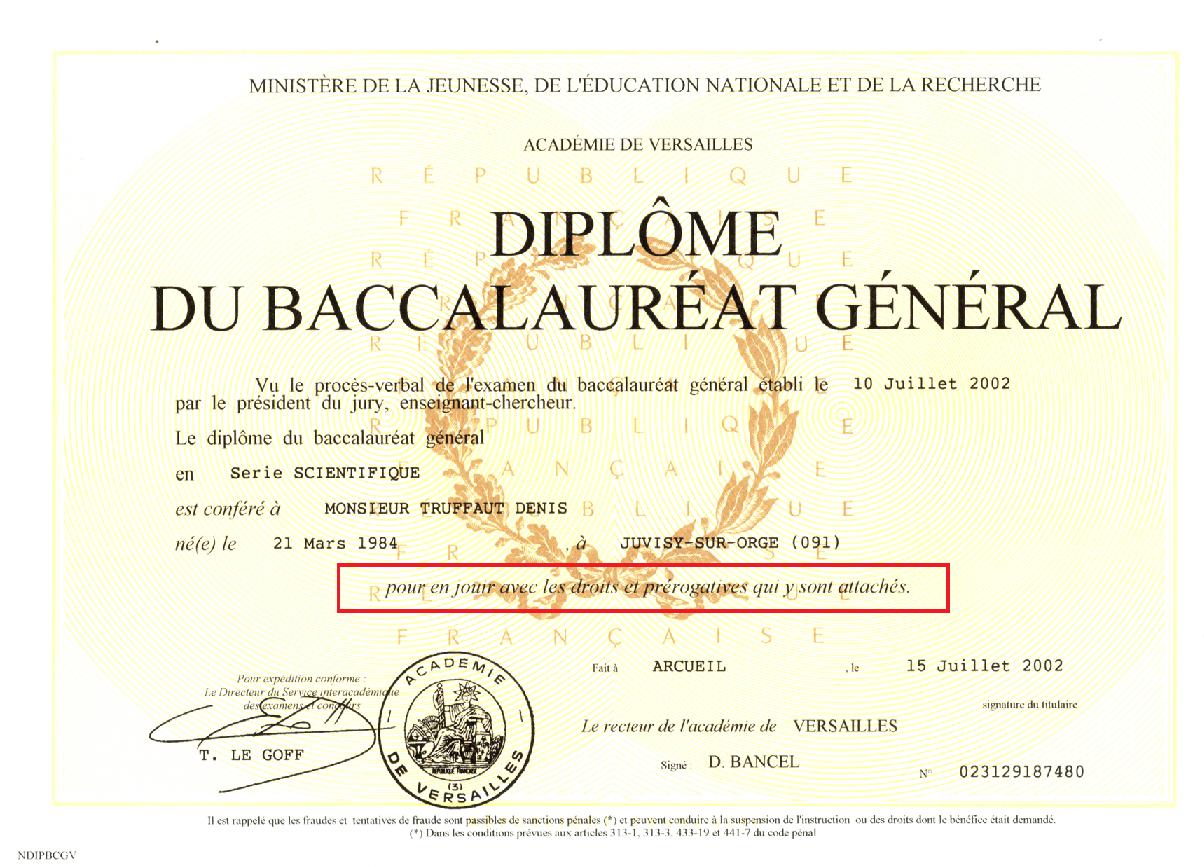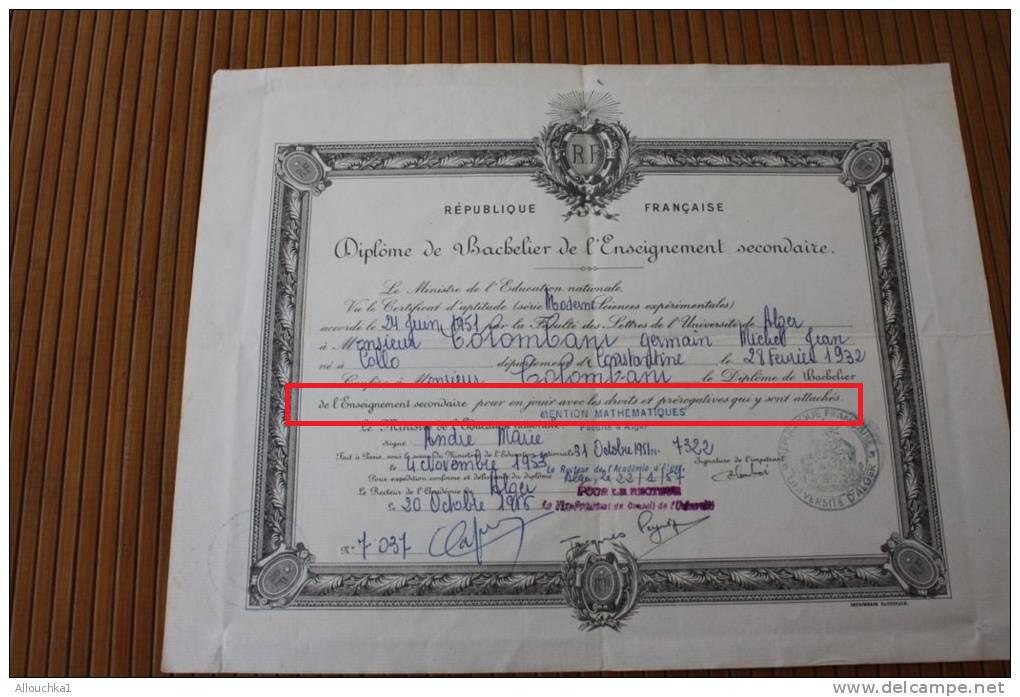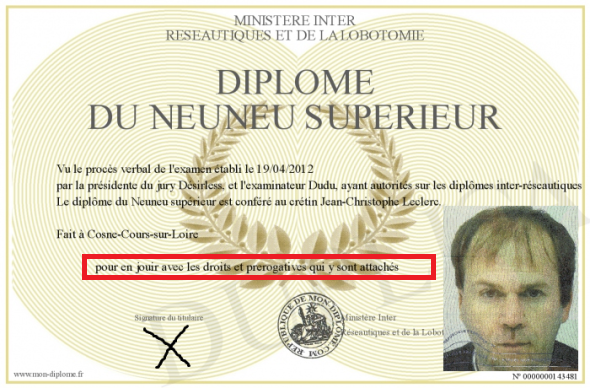I have noticed that many French diplomas contain the mention "Pour en jouir avec les droits et prérogatives qui y sont attachés", which can be translated into "[The diploma is conferred upon Mr. X and gives the Y level] to be enjoyed with all rights and privileges pertaining thereto."
What does "to be enjoyed with all rights and privileges pertaining thereto" mean on a French diploma? I.e., what are those rights and privileges? For example, if someone obtained the Baccalaureate diploma, what rights and privileges does that give?
I'm not sure whether it refers to some legal consequences, academic consequences, or something else, so that's why I don't post on Law.SE.
Examples:



